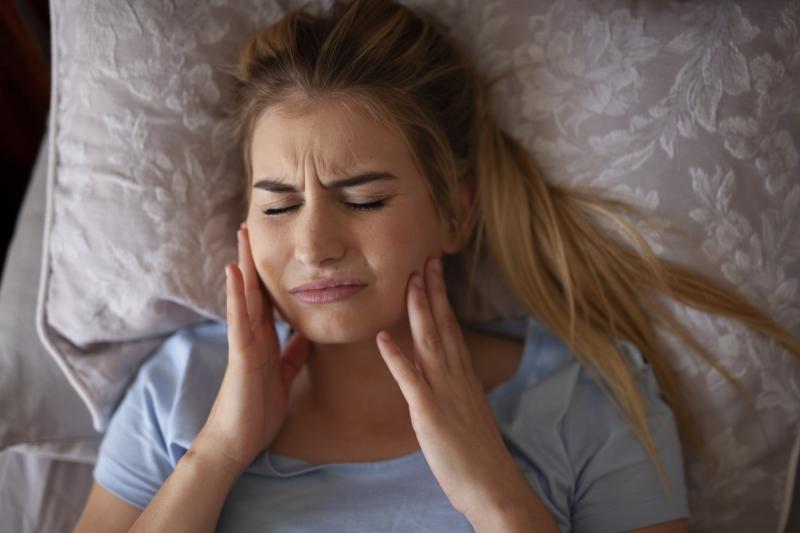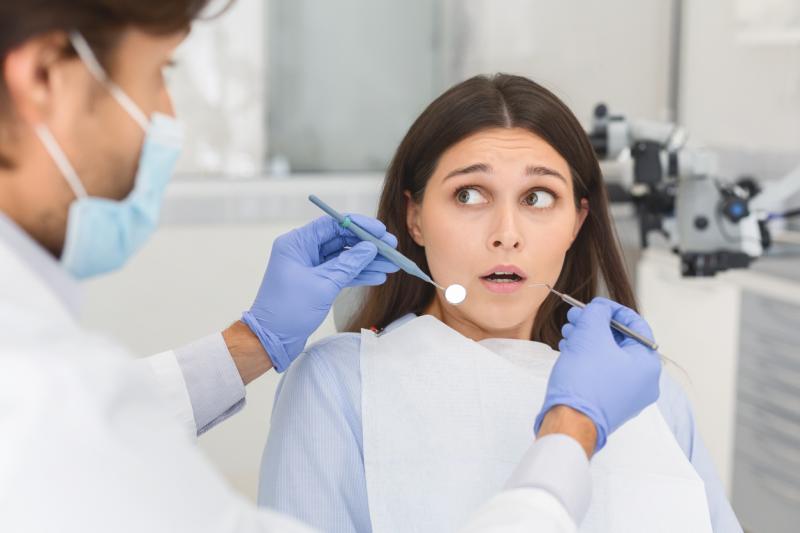Your Ultimate Guide To Bruxism

You probably don't know that you do it. Your friends don't know they do it. And probably neither do your family if they do it too. Once it starts happening to your teeth, it can be damaging in the long term.
We're talking about Bruxism, also known as teeth grinding.
This common condition happens to millions of Canadians, and if left untreated, can result in costly and painful dental problems.
So, what is Bruxism? Why does it happen? What can it lead to, and most importantly, how do you stop it? In this ultimate guide, you got all the answers you need to know.
The Ultimate Guide To Teeth Grinding
What is Bruxism?
Bruxism is known as teeth grinding, and it occurs when you clench your teeth together or grind them against each other. It usually happens when people are asleep, so they don't know they're doing it (however, partners can tell as they hear the grinding). It can also happen during the day without people knowing it.
Why causes Bruxism?
There are many reasons why people grind or clench their teeth, but the main culprits include the following:
- Being stressed or anxious (particularly before bed)
- Drinking too much alcohol, caffeine or smoking
- Individuals with misaligned or crook teeth
- Obsessive-compulsive tendencies can also exacerbate symptoms
- Airway issues, such as sleep apnea, can cause grinding problems as well
Being open and transparent with your dentist can help you determine the reasons why your Bruxism and what you can do to manage it.

What can Bruxism lead to?
If left untreated, Bruxism can cause various issues to your dental health, resulting in the most frequent and costly treatments in the future. Most of the common problems that arise include:
- Removing the layers of enamel, thereby exposing the inner layers of the tooth. The reduction of enamel can also lead to more decay and increased sensitivity
- Increased pain or tooth sensitivity to coldness, heat or brushing
- Teeth can get damaged, cracked, worn, fractured or chipped
- Soreness when chewing (you can also chew the inside of your mouth), as well as tired, tender or tight jaw muscles
- The feeling of earaches or high pressure in your ears
- Interrupted or broken sleep
- Gum tissue wear and exposure, leading to gum diseases
- In severe cases, it can lead to temporomandibular disorder (TMD), where your jaw clicks and pops out
While you might not experience all of these symptoms, you might encounter several of them at once. If you notice that is the case, it's best to visit your dentist as soon as possible.
How Do You Treat Bruxism?
In many cases, your dentist will create a mouthguard to wear at night that prevents you from grinding your teeth while sleeping. The mouthguard will be molded to your teeth' outline and shape, so it fits properly into your mouth. Avoid standard or store-bought mouthguards.
You could also be prescribed muscle relaxants to take before bed to keep you relaxed during your sleep. It would help if you also avoided caffeine and alcohol in the evening before bed, increasing the chance of grinding.
Your dentist might also prescribe you techniques to help you relax before bed. This can include exercise (earlier in the afternoon or evening), mediation, listening to calming music and counselling. Massaging and relaxing your jaw before bed can also prove useful. If your grinding is bite-related, you might require braces or Invisalign to help reduce your symptoms.
If you have Bruxism, it's important to visit your dentist regularly (twice to three times a year) to ensure that your treatment plan is working and to inspect your teeth.
Unfortunately, there is no one-size-fits-all remedy for Bruxism. It all depends on your situation and what you need, based on your dentist's recommendations.
We hope that this guide helps you with your battle with Bruxism. Remember: Bruxism is a common thing that happens to millions of people, but it is preventable and manageable. This blog post was sponsored by Dr. Tracey Downtown Dental, a well-established, high-qualified and respected dentist based in Downtown Calgary, Alberta, Canada. Search her up and set up an appointment today.
More to Read:
Previous Posts:





